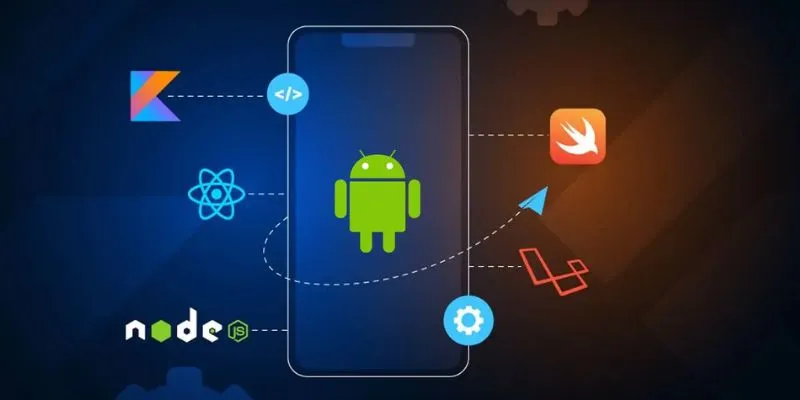
Android app development has become a cornerstone of the mobile industry, with millions of applications available on the Google Play Store catering to a wide range of user needs. To create high-quality, feature-rich apps, developers rely on robust tools that streamline the development process. This blog explores the top Android app development tools that empower developers to build, test, and deploy successful applications.
Top Android App Development Tools
1. Android Studio
Android Studio is the official Integrated Development Environments for Android app developments. Backed by Google, it offers an array of features tailored specifically for Android development:
- Code Editor: A powerful code editor with real-time suggestions, error detection, and code completion.
- Visual Layout Editor: Enables developers to design app layouts with a drag-and-drop interface.
- Debugging Tools: Comes with a built-in emulator and debugger to identify and fix issues efficiently.
- Support for Kotlin and Java: Offers seamless support for Android’s primary programming languages.
Aspiring developers can enhance their skills by joining Android Training in Chennai, which provides hands-on learning to master Android Studio and related tools. Android Studio is a one-stop solution for professionals seeking an all-in-one development environment.
2. IntelliJ IDEA
IntelliJ IDEA, developed by JetBrains, is another popular IDE for Android app development. It’s known for its intelligent code assistance and productivity-enhancing features:
- Smart Code Navigation: Quickly navigate between files, classes, and methods.
- Refactoring Tools: Simplifies code optimization and updates.
- Plugins: Extensive plugins available for added functionality.
- Version Control Integration: Works seamlessly with Git, GitHub, and other version control systems.
While Android Studio is built on IntelliJ IDEA, the latter provides a more generalized development experience.
3. Firebase
Firebase, a Google-backed platform, is indispensable for creating apps with advanced backend capabilities. It offers tools for:
- Real-Time Database: Stores and syncs data in real time.
- Authentication: Simplifies user sign-in using email, phone, or third-party services like Google.
- Analytics: Provides insights into user behavior to improve engagement.
- Crashlytics: Tracks and fixes app crashes efficiently.
For a deeper understanding of Firebase, consider enrolling in an Android Online Course which covers Firebase integration in detail. Firebase is a top choice for developers aiming to build scalable, secure, and data-driven applications.
4. Gradle
Gradle is a powerful build automation tools that works seamlessly with Android Studio. It simplifies the management of dependencies and builds processes. Key features include:
- Custom Build Configurations: Allows multiple build variants (debug, release) for a single app.
- Dependency Management: Automates library integration.
- High Performance: Speeds up the build process with caching and incremental builds.
Gradle is essential for developers seeking to optimize their build workflows.
Read more: Exploring the Capabilities of Apache Hive for Big Data Analytics
5. Unity
Unity is a leading development platform for creating immersive 2D and 3D Android games. It provides a comprehensive suites of tools for:
- Game Design: Visual scripting and asset management for game creation.
- Cross-Platform Support: Deploys games across multiple platforms, including Android.
- AR and VR Development: Supports augmented and virtual reality experiences.
Developers can also explore a Content Writing Course in Chennai to improve their ability to create compelling game narratives.
For game developers, Unity remains an industry standard for creating visually stunning and interactive games.
6. Flutter
Flutter, Google’s UI toolkit, enables developers to create natively compiled applications for Android and other platforms from a single codebase. Its advantages include:
- Hot Reload: Allows developers to see changes instantly during development.
- Customizable Widgets: Provides pre-built and customizable widgets for UI design.
- Performance: Delivers high performance by directly compiling to native code.
Flutter is ideal for developers aiming for cross-platform compatibility and rapid app development.
7. Postman
Postman is a must-have tool for developers building apps that rely on APIs. It offers features such as:
- API Testing: Simplifies API endpoint testing.
- Collaboration: Enables teams to work together on API requests.
- Automation: Supports automated testing with scripting.
Developers can also benefit from a Content Writing Online Course to effectively document API usage and create detailed technical guides.
Postman enhances the development of apps that depend on robust API integrations.
Choosing the right development tools is crucial for creating successful Android applications. Tools like Android Studio, IntelliJ IDEA, Firebase, Gradle, Unity, Flutter, and Postman provide developers with the necessary resources to streamline workflows, enhance app performance, and deliver exceptional user experiences.
By leveraging these tools and enrolling in training programs like the Advanced Training Institute in Chennai, developers can efficiently build feature-rich, scalable, and engaging applications that meets the ever-evolving demands of the Android user base. Whether you’re a beginner or a seasoned professional, the right tools and training will empower you to bring your app ideas to life.
Read more: What is the Role of Automation in DevOps?
